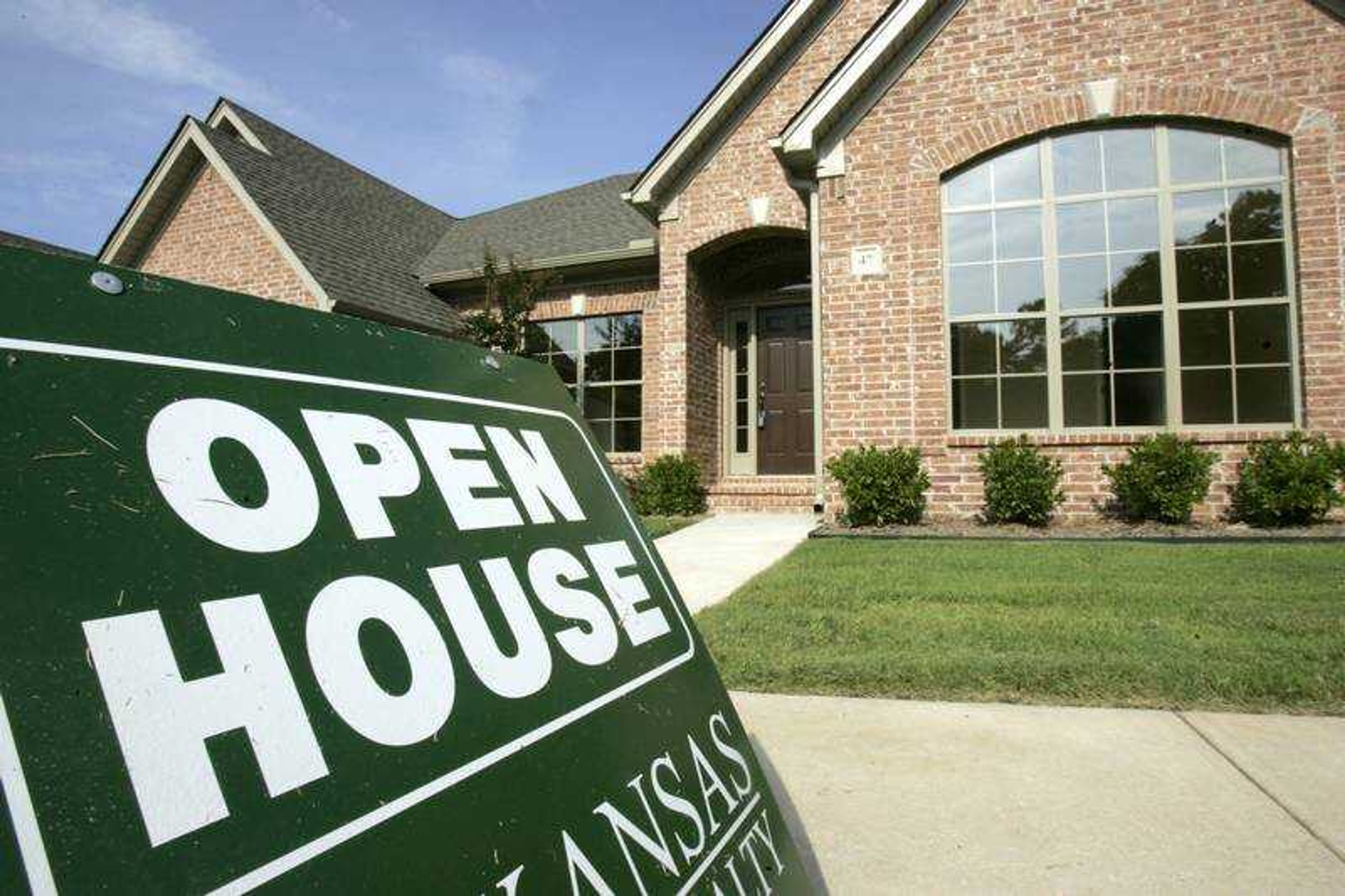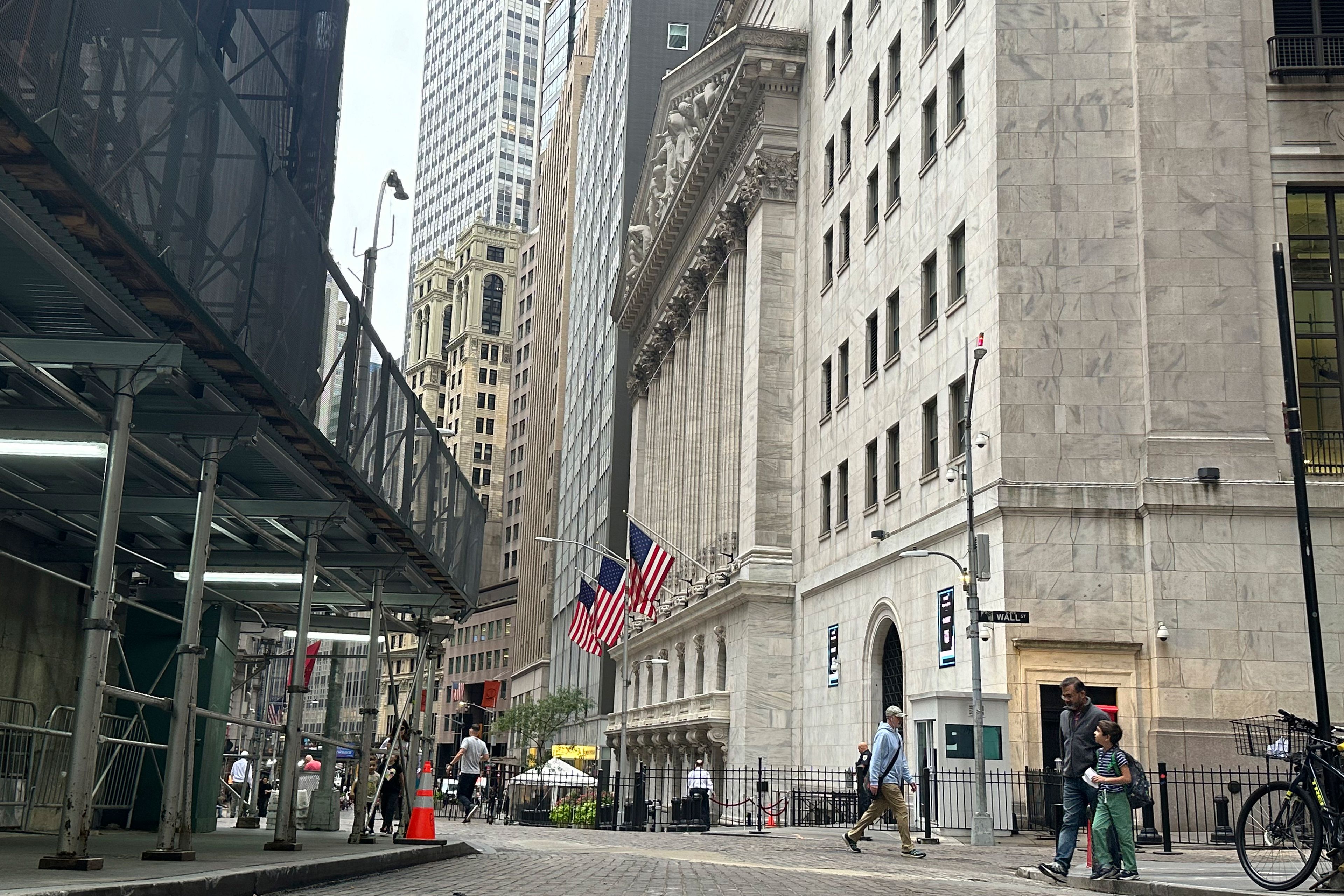WASHINGTON — After weeks of negative reports, the economy got some more positive news Friday.
Wall Street, which suffered a large drop Thursday, managed a modest gain. Oil prices hit their lowest point since early June, and gas fell to a seven-week low. Military spending helped boost big-ticket factory orders in June, and new home sales fell less than expected.
Still, private economists cautioned that a few better-than-expected data releases did not mean the economy's problems had disappeared.
The Commerce Department reported that a second straight double-digit increase in orders for defense capital goods had pushed total orders for big-ticket manufactured products up by 0.8 percent in June, the strongest gain in four months and much better than the 0.4 percent decline that economists had been expecting.
In a second report, Commerce said sales of new homes dropped by 0.6 percent in June, less than half the decline that had been expected. May sales were revised to show more strength than originally thought, although they were still down. New home sales have fallen in seven of the past eight months as the nation endures the steepest slump in housing in a generation.
But economists were encouraged that the pace of the decline has slowed significantly and two regions of the country — the Northeast and the Midwest — actually posted sales gains in June. Sales fell in the South and West. The inventory of unsold new homes also fell to a 10 month supply at the June sales pace, still high, but down from the peak of 11.2 months in March.
Brian Bethune, chief U.S. financial economist at Global Insight, said despite the positive flickers in the housing report, "the housing market remains extremely fragile."
Evidence of that came in a separate report showing that the number of households facing foreclosure more than doubled in the second quarter, compared to a year ago. Nationwide, 739,714 homes received at least one foreclosure-related notice during the quarter, or one in every 171 U.S. households, according to Irvine, Calif.-based RealtyTrac Inc.
Wall Street, which had plunged by more than 280 points Thursday following news that existing home sales had dropped more than expected in June, chose to be more optimistic Friday. The Dow Jones industrial average rose by 21.41 points to finish a volatile week at 11,370.69.
On the energy front, oil prices declined $2.23 settling at $123.26 a barrel on the New York Mercantile Exchange Friday as gas prices dipped to $4.006 per gallon, the first time pump prices have been that low in nearly seven weeks, according to a survey by AAA, the Oil Price Information Service and Wright Express.
AAA spokesman Geoff Sundstrom said prices at the pump should slip below the $4 mark over the weekend and could drop by at least another 25 cents by Labor Day, if oil stays on its downward path. However, analysts said it was too early to tell whether the decline was here to stay.
At the same time, investors were encouraged by some slightly better news about consumers. The Reuters/University of Michigan index of consumer sentiment for July came in at 61.2, beating expectations and slightly better than the 28-year low of 56.4 hit in June.
Still, private economists cautioned that a reading at 61.2 was still in recession territory and far below the level of a year ago when the confidence index was at 90.4.
They said the economy faces sizable headwinds from the prolonged housing slump, which has driven mortgage foreclosures higher and resulted in billions of dollars of losses for financial companies. On top of that, the economy has shed nearly a half-million jobs since January as economic growth has stalled because of the troubles in housing, the credit crunch and soaring energy prices.
Congress is moving to pass its most sweeping response to the housing crisis. Supporters say the bill could help 400,000 at-risk homeowners avoid foreclosure while offering tax breaks for first-time home buyers and providing federal support if needed to stabilize Fannie Mae and Freddie Mac, the two companies which own or guarantee nearly half the nation's mortgages.
Industry analysts said they believed the housing rescue bill, which passed the House on Wednesday and cleared the last major hurdle in the Senate on Friday, will help combat the housing downturn and should result in a rebound in activity, but not until next year.
Bernard Markstein, senior economist at the National Association of Home Builders, said that offering first-time buyers a tax credit worth up to $7,500 should encourage fence-sitters to get back into the market as long as banks do not overreact to their mortgage losses by making loans too difficult to obtain.
"Unfortunately, we are now seeing excessive caution on the part of lenders," he said. "We have gone from lending too wildly to excessive caution."
Markstein predicted that new home sales will drop to 537,000 for all of 2008, which would be the slowest pace since 1991. But he forecast a rebound beginning in 2009.
The report on new home sales showed that the median price of a new home sold in June fell by 2 percent compared to a year ago.
Connect with the Southeast Missourian Newsroom:
For corrections to this story or other insights for the editor, click here. To submit a letter to the editor, click here. To learn about the Southeast Missourian’s AI Policy, click here.









